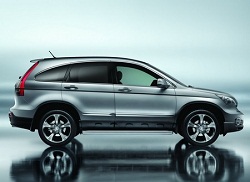In an era where environmental consciousness is crucial, understanding the intricacies of fuel efficiency has emerged as a significant topic. Among the vehicles that capture attention for their eco-friendliness and practicality is the Honda Fit. This compact car promises not just mobility but also an appealing mileage performance, sparking curiosity about how it operates in terms of miles per gallon (MPG). This exploration of the Honda Fit’s fuel efficiency is not just about numbers; it encapsulates a broader narrative about sustainable driving choices.
The Honda Fit, known for its versatile design and surprising spaciousness, offers an enticing option for both urban commuters and adventurous travelers. What sets it apart in the crowded compact car segment is its commendable MPG ratings, a statistic that resonates deeply with cost-conscious and eco-minded individuals alike. Understanding the nuances of these ratings can reshape our perception of what constitutes an efficient vehicle, ultimately ushering in a shift toward more sustainable driving habits.
Let’s delve into the metrics. The Honda Fit generally boasts an impressive MPG range, with configurations that typically yield around 33 MPG in city driving and upwards of 40 MPG on the highway. These figures, however, are not just arbitrary numbers; they are the result of cutting-edge engineering and a robust ethos of fuel conservation that Honda has championed for decades. The efficient performance of the Fit can be attributed to several pivotal design elements.
At the heart of the Honda Fit’s efficiency lies its intelligent engine design. Utilizing a compact but powerful 1.5-liter four-cylinder engine, the vehicle strikes a harmonious balance between performance and economy. This engine is optimally tuned to deliver responsive acceleration while minimizing fuel consumption. Enhanced fuel injection systems further improve combustion efficiency, ensuring that each drop of fuel contributes maximally to the vehicle’s propulsion.
But it doesn’t stop there. The transmission plays a vital role in achieving high MPG figures. The Honda Fit typically features a continuously variable transmission (CVT), which allows for seamless gear transitions. This design not only enhances the driving experience but significantly augments fuel efficiency. By maintaining the engine at its ideal operating range, the CVT reduces unnecessary fuel expenditure, allowing drivers to travel further on less.
Another dimension to consider is the lightweight construction of the Honda Fit. The materials used in its design are ingeniously selected to provide durability without adding excessive weight, which in turn enhances fuel efficiency. A lighter vehicle demands less energy to operate, creating a synergistic effect that compounds the savings generated by the efficient engine and transmission. By shedding unnecessary mass, the Honda Fit exemplifies how thoughtful engineering can lead to sustainable driving experiences.
A pivotal aspect of the Fit’s functionality is its adaptability. The “Magic Seat” feature allows the rear seats to be configured in multiple ways, providing various loading options for both passengers and cargo. This practical versatility means owners are less likely to resort to larger, less efficient vehicles for hauling goods, which dovetails neatly into a more sustainable lifestyle. By limiting the need for unnecessary car trips or larger vehicles, Honda Fit owners contribute to lower emissions and increased overall fuel economy.
When scrutinizing the broader implications of fuel efficiency, it’s imperative to acknowledge the role of aerodynamics in automotive design. The Honda Fit’s sleek profile is not merely incidental; it has been meticulously crafted to reduce drag. Enhanced aerodynamics not only improve vehicle handling but significantly contribute to fuel economy, especially at higher speeds. By embracing advances in design technology, the Fit exemplifies how aesthetic choices can align with responsible environmental practices.
Compounding these advantages is the increasing availability of hybrid models, further cementing Honda’s commitment to sustainability. The hybrid version of the Honda Fit showcases the advantages of integrating electric propulsion with conventional gasoline engines. This fusion not only amplifies miles per gallon but also reduces dependence on fossil fuels, making a pronounced statement about the future of automotive engineering. With electric powertrains becoming more prevalent, consumers are increasingly presented with choices that align with a desire for greener alternatives.
In light of these insights, one cannot ignore how ownership of a Honda Fit encourages a culture of mindful consumption. Owning a vehicle that exemplifies fuel efficiency is not just about personal convenience; it is a proclamation of environmental responsibility. Every mile driven becomes a conscious choice, an opportunity to reduce one’s carbon footprint and inspire others to consider their transportation options more carefully.
The catchphrase “every drop counts” resonates profoundly in the context of fuel consumption. As individuals become more knowledgeable about the complete impact of their vehicles, the Honda Fit stands as a testament to what can be achieved through a commitment to sustainability. It demonstrates a potent narrative that transcends the automobile itself, highlighting an essential shift in how society perceives transportation.
Ultimately, the Honda Fit is more than just a car; it is an embodiment of strategic engineering that aligns with the values of a growing demographic committed to ecological mindfulness. It presents a paradigmatic shift in perspective, urging consumers to think critically about their choices on the road. The Fit not only piques curiosity but, more importantly, inspires a collective journey towards more sustainable and fuel-efficient driving, influencing not just the individual driver but the community at large.
In conclusion, as we navigate the challenges of climate change and environmental degradation, understanding vehicles that uphold sustainability becomes critical. The Honda Fit not only exemplifies efficiency in fuel consumption but also serves as a catalyst for informed consumer choices. This compact yet capable car invites us to reconsider our mobility and to champion a future where driving is synonymous with responsibility.
